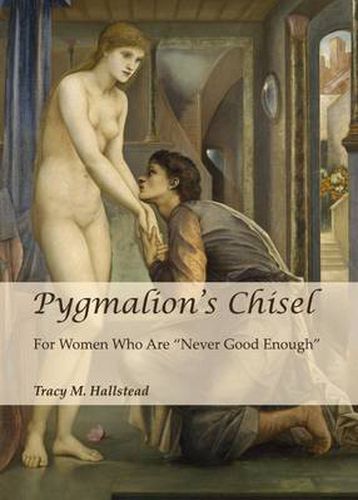Readings Newsletter
Become a Readings Member to make your shopping experience even easier.
Sign in or sign up for free!
You’re not far away from qualifying for FREE standard shipping within Australia
You’ve qualified for FREE standard shipping within Australia
The cart is loading…






Pygmalion’s Chisel: For Women Who Are Never Good Enough, by Tracy M. Hallstead, examines the enduring critical presence in contemporary Western culture that scrutinizes, critiques, and sizes women down in their daily lives, despite rights gained through the centuries. Pygmalion was the ancient mythical sculptor who believed that all women were essentially flawed. He therefore endeavored to chisel to perfection a statue of a woman he called Galatea. Like the perpetually carved and perfected Galatea, women labor under Western culture’s a priori assumption that they are flawed, yet they are often unable to account for the self-criticism and self-doubt that result from this premise.As Hallstead analyzes the culture’s requirements for the perfect woman, she traces how cultural forces permeate women’s personal lives. In calling for solutions, she resurfaces the thinking of historical women who responded, rather than reacted, to the patriarchal culture that devalued them. In engaging these women of the past, whose struggles were eerily similar to our own, Hallstead encourages a responsive feminism that becomes the clear path leading outside Pygmalion’s chamber door.
$9.00 standard shipping within Australia
FREE standard shipping within Australia for orders over $100.00
Express & International shipping calculated at checkout
Pygmalion’s Chisel: For Women Who Are Never Good Enough, by Tracy M. Hallstead, examines the enduring critical presence in contemporary Western culture that scrutinizes, critiques, and sizes women down in their daily lives, despite rights gained through the centuries. Pygmalion was the ancient mythical sculptor who believed that all women were essentially flawed. He therefore endeavored to chisel to perfection a statue of a woman he called Galatea. Like the perpetually carved and perfected Galatea, women labor under Western culture’s a priori assumption that they are flawed, yet they are often unable to account for the self-criticism and self-doubt that result from this premise.As Hallstead analyzes the culture’s requirements for the perfect woman, she traces how cultural forces permeate women’s personal lives. In calling for solutions, she resurfaces the thinking of historical women who responded, rather than reacted, to the patriarchal culture that devalued them. In engaging these women of the past, whose struggles were eerily similar to our own, Hallstead encourages a responsive feminism that becomes the clear path leading outside Pygmalion’s chamber door.